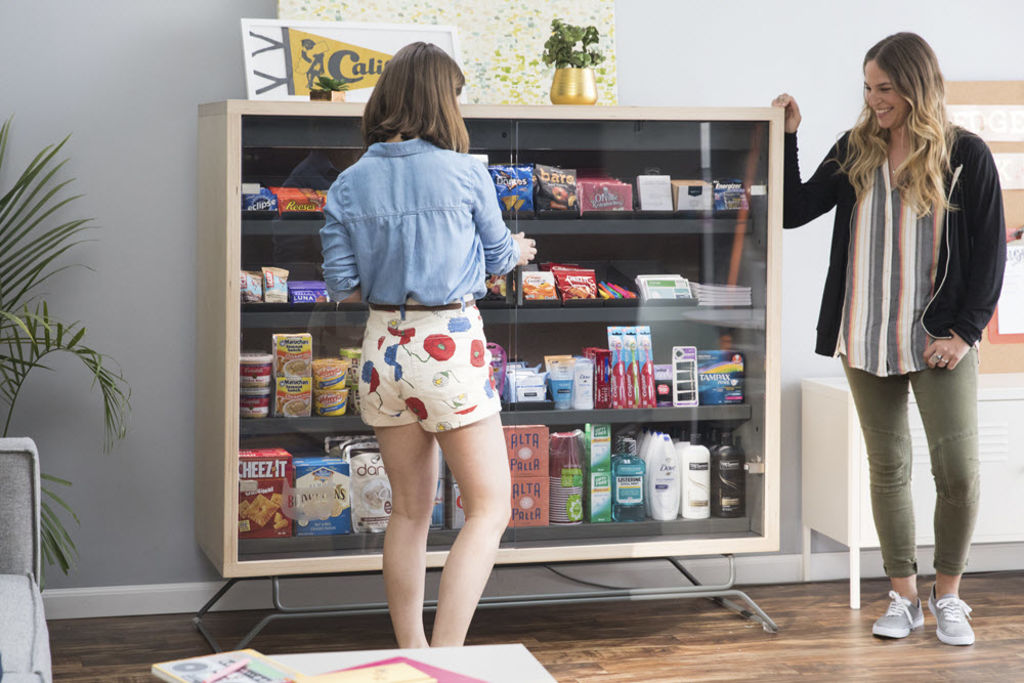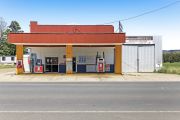
Anger at vending machine company's plans to replace the corner store
Maya Salam and Christina Caron
Don’t mess with the beloved bodega.
That was the overriding sentiment online this week when a startup suggested its internet-connected vending machines would upend traditional big-city corner stores, and not-so-gracefully borrowed a name for these stores.
The company, Bodega, created by two former Google employees, claims its product is as “easy as opening your own pantry.” In order to take items from the machines – there are more than 30 throughout the San Francisco Bay Area – users must use an app that is linked to their credit card.
“Eventually, centralised shopping locations won’t be necessary, because there will be 100,000 Bodegas spread out, with one always 100 feet away from you,” Paul McDonald, one of Bodega’s creators, told Fast Co.
When word got out, “bodega” started trending on Twitter. And not in a good way.
The Association for Neighborhood and Housing Development in New York addressed the matter in a statement. “The awful irony of naming the company ‘Bodega’ after the very brick and mortar institutions they aim to displace, to say nothing about the cat their logo is based on that will similarly be displaced, is offensive, utterly misguided, and frankly disrespectful to New Yorkers,” it said.
Frank Garcia, chairman of the New York State Coalition of Hispanic Chamber of Commerce, told Fast Co. that “to compete with bodegas and also use the ‘bodega’ name is unbelievably disrespectful”.
McDonald went into damage-control mode after the backlash, using a blog post on Wednesday afternoon to address the uproar and to say sorry.
“Despite our best intentions and our admiration for traditional bodegas, we clearly hit a nerve this morning, we apologize,” he wrote. “Like NYC’s bodegas, we want to build a shopping experience that stands for convenience and ubiquity for people who don’t have easy access to a corner store.”
The company declined to comment further.
Could these machines that hold about 100 nonperishable items each realistically replace bodegas? After all, technology like Uber has disrupted New York’s taxi business, and Airbnb has rattled the hotel industry.
Saiful Islam, who has been working at the Corner News Grocery Store in Midtown Manhattan for about 14 years, doesn’t think so. “Machines can’t be the brain,” he said.
In most corner stores, customers are not necessarily looking for home goods or groceries. Bodegas are a place, often featuring a friendly neighbourhood cat, to order breakfast sandwiches and coffee. A place to buy lottery tickets, cigarettes and foreign language newspapers.
Day by day, tech creates a world in which fewer people are needed to do jobs, Islam said. But at the store where he works, where many lottery tickets are sold, “you need a person to handle things.”
But Michael Kasavana, a former professor at Michigan State University and a researcher on automated merchandising systems, thinks vending machines could replace stores in the future.
“There’s definitely a market for the replacement of the corner store with those kinds of machines,” he said. “It’s a quick stop. You don’t have to talk to anybody. It’s anonymous, and it’s cashless.”
“Americans have shown that they’re not afraid to do self-service, whether it be at the gas pump, replacing banking or online purchases,” he said.
The idea behind the startup is not new. Automat vending machines, introduced in New York in 1912, served sandwiches, hot dishes and desserts, among other things. People were able to drop a nickel in a coin slot, open a compartment door and pull out a ready-to-eat dish. The new Bodega machines cannot offer hot or cool items.
Bodega is also not breaking ground in the realm of internet-connected vending machines, which are on the rise, according to Berg Insight, a market research firm in Sweden. It predicted in a December report that the number of internet-connected vending machines worldwide would grow from 1.5 million units in 2015 to 3.6 million by 2020. There are almost 17 million vending machines worldwide, the report said.
Shop24, for example, has numerous locations in Europe and a handful in the United States. They are massive by vending machine standards and provide refrigerated goods.
In Japan, you can find just about anything in a vending machine, including hot food like ramen.
Ying Luo, who has worked at the 39 & 9th Grocery in Midtown Manhattan for about a year, said he’d happily be a customer of a ramen-dispensing vending machine in the United States. But without the ability to serve hot or cold items, he thought the Bodega machines were a “strange idea.”
There’s “no way that could replace bodegas,” he said.
Efrat Kasznik, president of Foresight Valuation Group and a lecturer at the Stanford Graduate School of Business, said the vending machine was an example of all the different trends that enable the Internet of Things: payment, security, recognition, social networking.
She added that the United States was decades behind other countries. Tokyo and Seoul, South Korea, “are way, way more advanced technologically in terms of payment,” she said. “Everything is digital.”
There might be evidence, though, that bodegas and Bodegas can mutually exist. In Japan, despite its high concentration of sophisticated vending machines, there are about 40,000 convenience stores, according to Foresight Valuation Group.
Whether a proliferation of vending machines would prompt a drop in mum-and-dad stores in the United States is hard to determine, according to Foresight: “The blame would likely be better directed at Walmart, Amazon and Google Express.”












